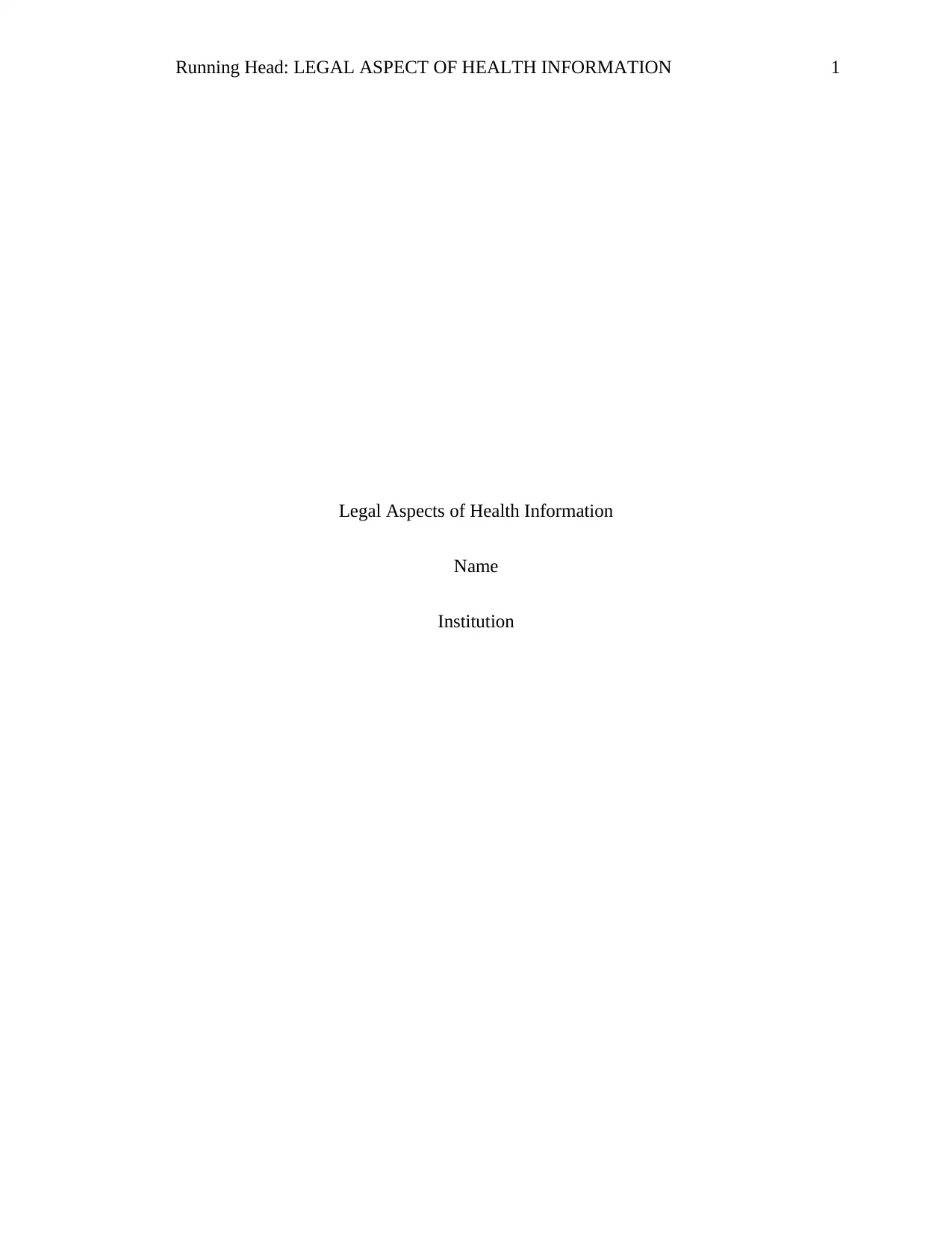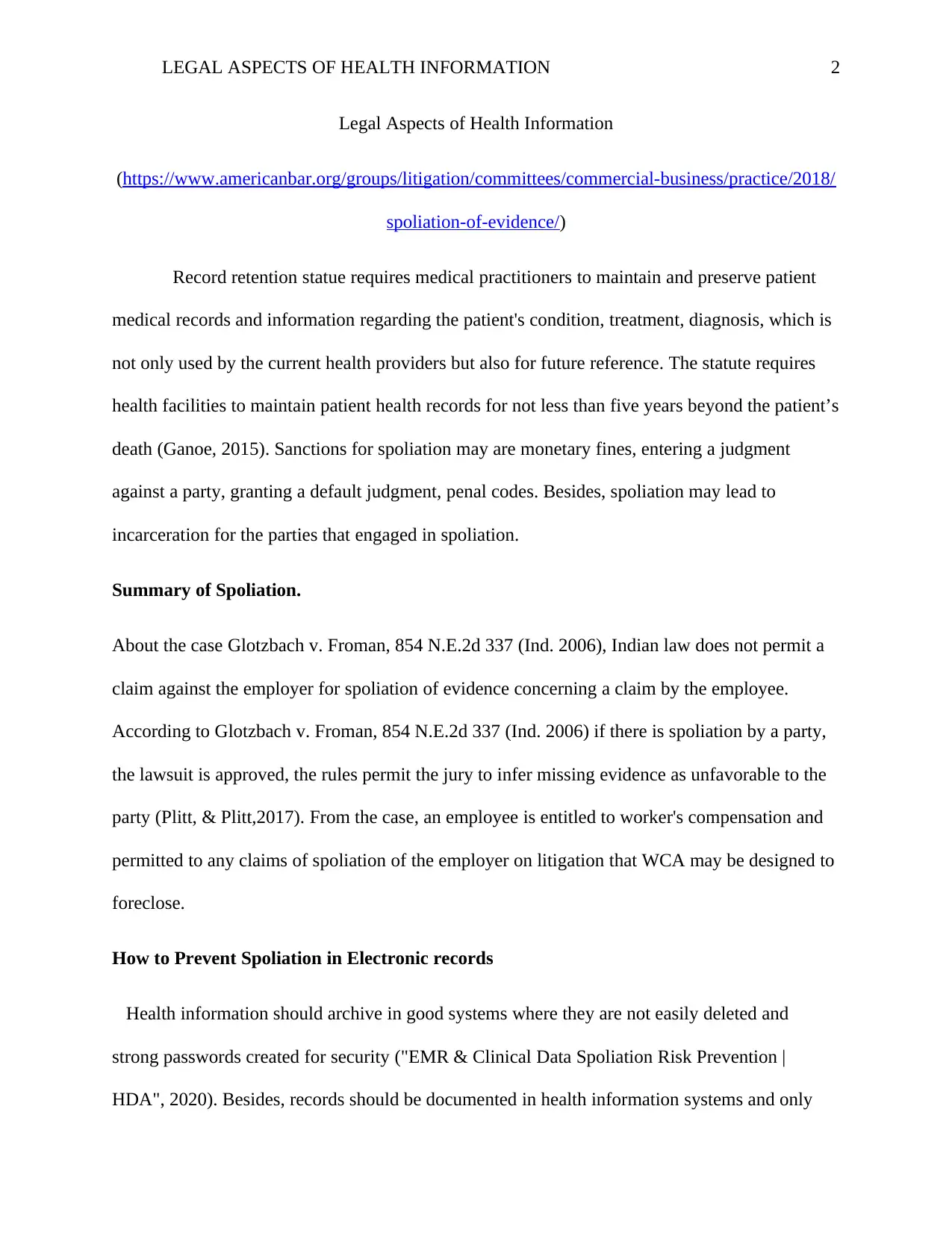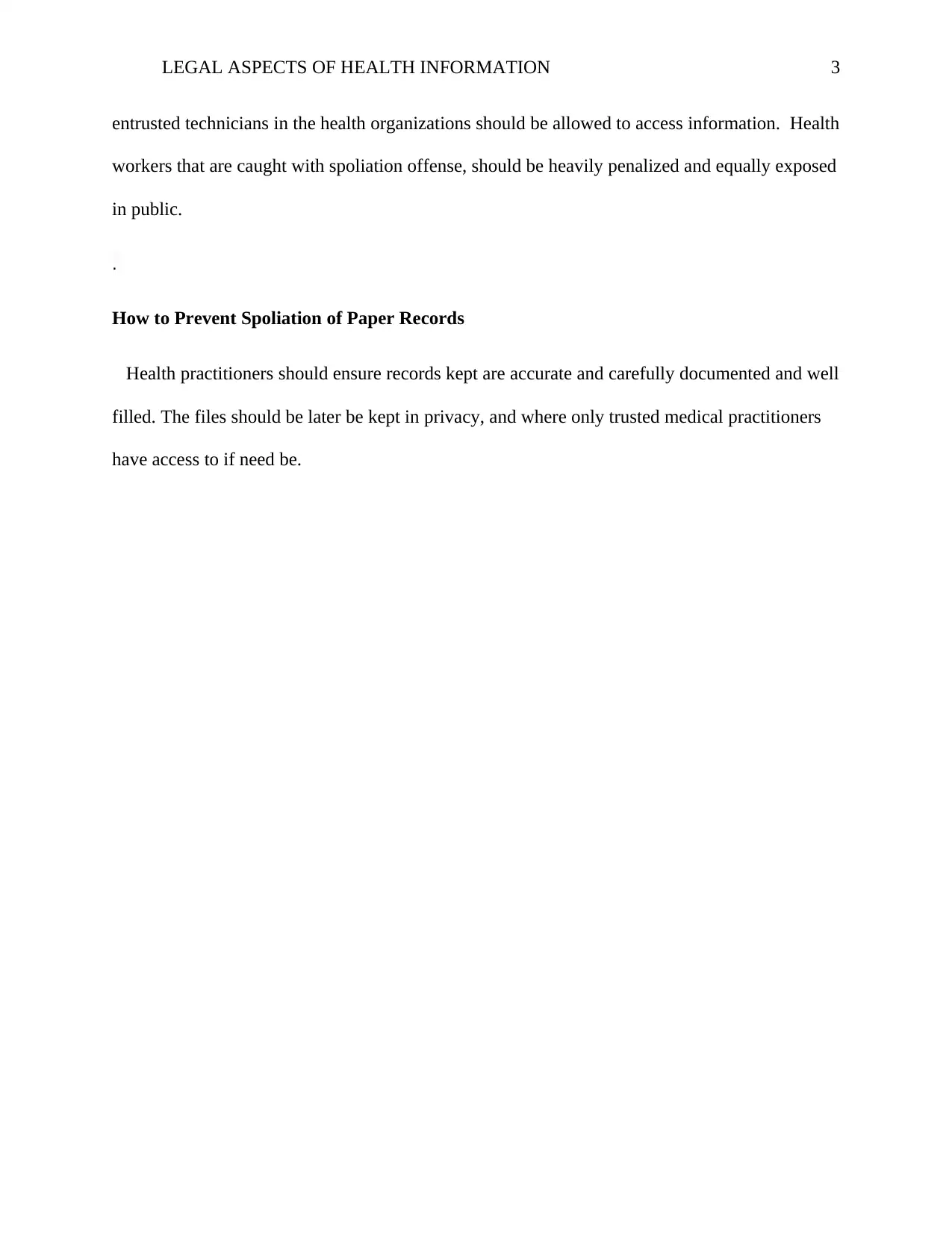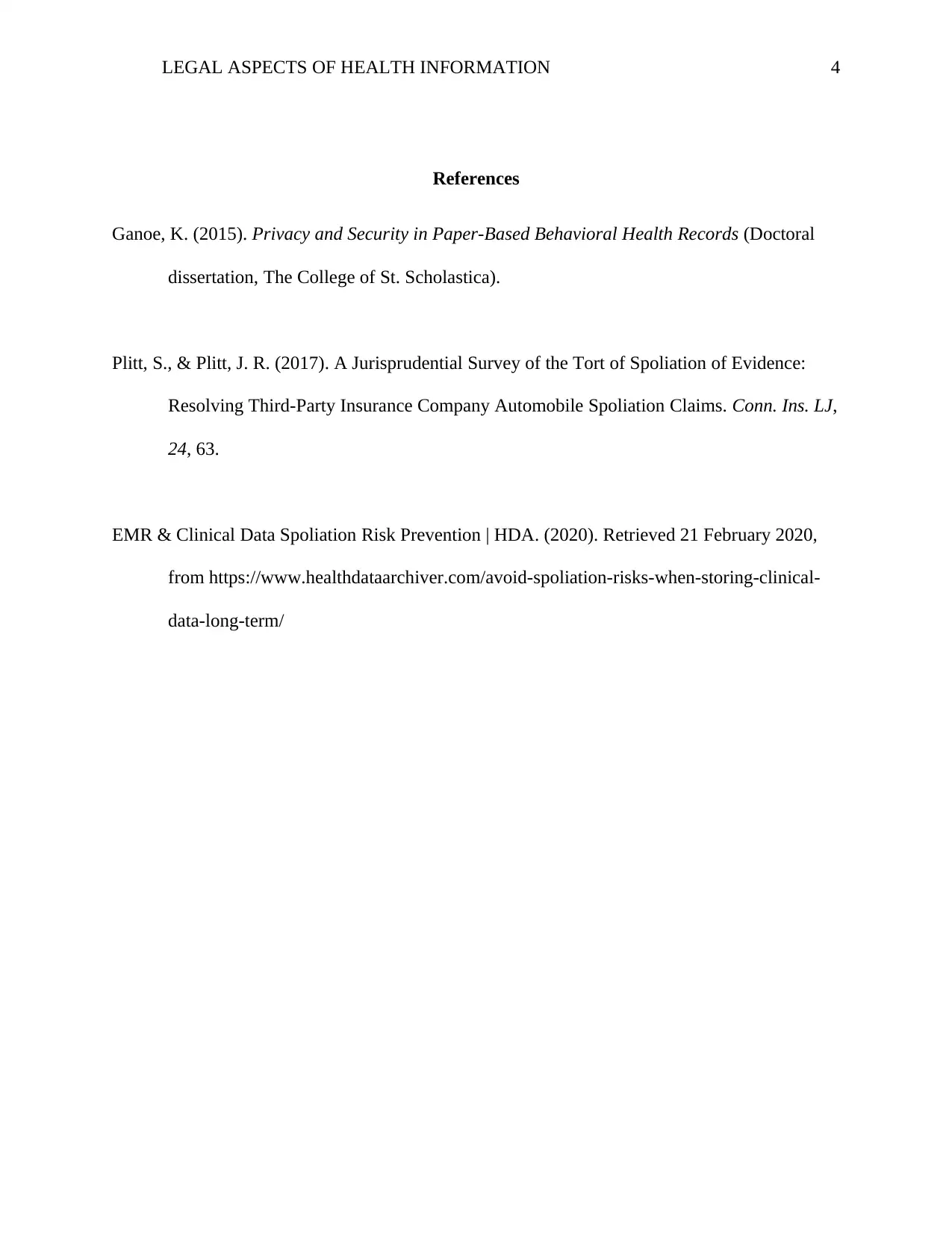Legal Aspects of Health Information: Spoliation and Record Retention
VerifiedAdded on 2022/08/09
|4
|483
|31
Report
AI Summary
This report examines the legal aspects of health information, with a specific focus on spoliation and record retention practices within the healthcare industry. It begins by defining spoliation, referencing the case of Glotzbach v. Froman, and explaining the legal ramifications of destroying or altering medical records. The report highlights the importance of maintaining accurate and accessible health records, including the legal requirements for record retention. It provides practical recommendations for preventing spoliation in both electronic and paper-based systems, emphasizing the need for secure data storage, restricted access, and strict adherence to legal guidelines. By addressing these issues, the report aims to ensure the integrity and confidentiality of patient data, as well as compliance with legal and ethical standards.
1 out of 4






![[object Object]](/_next/static/media/star-bottom.7253800d.svg)